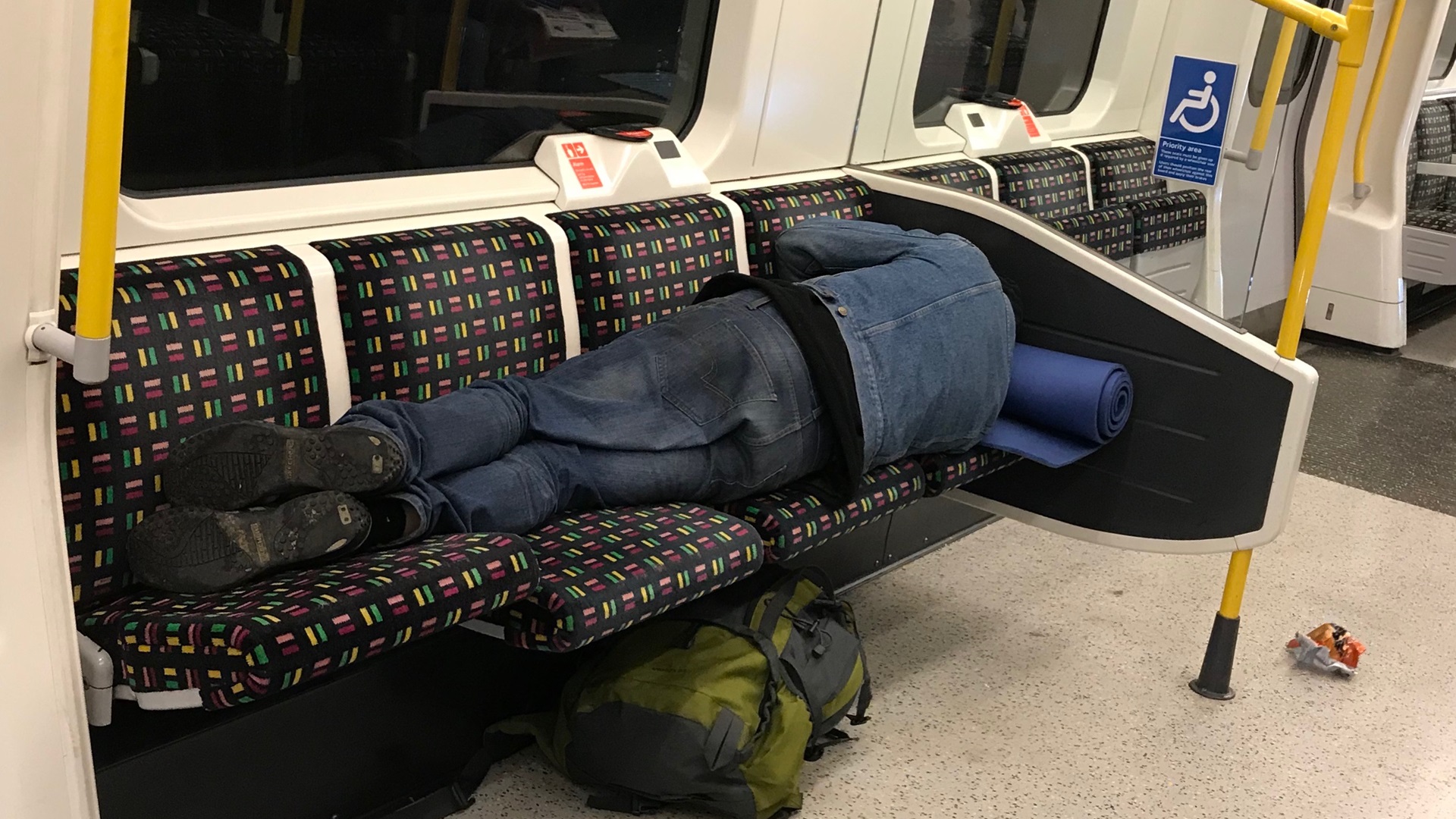Once given leave to remain, refugees are supposed to be given 28 days notice before they are evicted from hotels. But the Big Issue has uncovered a huge spike in refugees being evicted into homelessness, leading to U-turns from the government.
The number of rough sleepers originally from Africa rose from 466 people in July and September to 680 people in October to December. It was a similar story from rough sleepers originally from Asia, up from 324 people to 442.
Meanwhile, the number of people sleeping rough originally from the UK stayed virtually unchanged at 1,742 people.
St Mungo’s chief executive Emma Haddad said the shortage of affordable housing is leaving people out in the cold in London and called for a pause on evictions from Home Office asylum accommodation during periods when severe weather measures are in place.
“This is not a surprise – our outreach teams across London have been inundated with new people arriving onto the streets,” said Haddad.
“Homelessness is preventable but St Mungo’s frontline workers are too often trying to help people out of the cold who didn’t need to end up there in the first place.
Advertising helps fund Big Issue’s mission to end poverty
“We are calling for emergency support to get people into housing until local housing allowance rates are unfrozen in April and, with the bitter weather looming again for February, we need a pause on evictions from Home Office asylum accommodation when the severe weather occurs.”
The shift means the proportion of Brits sleeping rough in London is down to just over 43% from 48% in the previous three months.
John Glenton, executive director of care and support at housing association Riverside, said the “growing humanitarian crisis” is showing no signs of slowing. He also warned demand for homelessness services is stepping up the pressure on local authorities amid warnings that the crisis could send some to the brink.
“These latest year-on-year increases are deeply worrying,” said Glenton.
“It means we have now seen the largest number of people sleeping rough on the streets of our capital ever recorded during a quarterly period.
“Our deep concern here is that we have not reached the peak of this crisis and providers are also reporting unprecedented demand on their services in January.
Advertising helps fund Big Issue’s mission to end poverty
“Meanwhile, local authorities are being forced to cut homelessness budgets and essential services to stay afloat.
“As a minimum, political parties should at least commit to supporting councils in meeting their current level of homelessness provision, as well as encouraging a preventative, ‘invest-to-save’ approach to tackle homelessness.”
The number of people spotted sleeping rough in London for the first time was a third higher than in October to December last year with 2,283 people new to the streets.
In total, 560 people were deemed to be living on the streets including 64 people who were new to the streets in the three months before Christmas. That’s a quarter higher than the same point last year and 16% more than the number spotted by frontline workers in July to September.
Analysis by youth homelessness charity Centrepoint found the number of young people seen sleeping rough in London is almost a third higher than it was at the time of the last election.
“Not only will the government break its manifesto pledge of ending rough sleeping – things are actually getting worse. That’s no more evident than in London, where rough sleeping has now increased by a third since the last general election. Our research, together with the sheer volume of calls to our helpline, strongly suggests the same is happening elsewhere,” said Alicia Walker, Centrepoint’s head of policy, research and campaigns.
Advertising helps fund Big Issue’s mission to end poverty
“It’s vital when looking at these figures we remember that, behind them, are real people struggling to survive. The extreme weather going into Christmas means that hundreds of people will have literally been risking their lives by staying on the streets at a time when ministers were focusing more on criminalising them than helping them.”
Meanwhile, Crisis chief executive Matt Downie said the figures show there needs to be a change of strategy to end rough sleeping.
“Instead of tackling our broken housing system, which would bring these shameful numbers down, the Westminster government is focusing its energy on introducing new powers to criminalise people for sleeping on the streets,” said Downie.
“The government must not consign thousands more to a life on the streets. It’s crucial that we invest in the solutions we know work, such as building more social housing and funding support services like Housing First. The Criminal Justice Bill must also be amended to remove the parts that criminalise homelessness. No one should be punished for not having a home.”
We’re calling on the prime minister to make sure everyone can afford to stay in their homes and pay for the essentials. Will you join us and sign the petition?
Advertising helps fund Big Issue’s mission to end poverty
The statistics come as 17 housing organisations warned the government plans to give British households priority for social housing would lead to rising homelessness.
Ministers unveiled the consultation on the plans, which will run until 26 March, on Wednesday just days after the open letter warned ”further rationing of an already scarce resource does not address the fundamental failures” to build more social housing.
Housing minister Lee Rowley said: “The public want to know decent and hardworking people that have contributed to this country will be prioritised for new social tenancies.”
Do you have a story to tell or opinions to share about this? We want to hear from you. Get in touch and tell us more.









